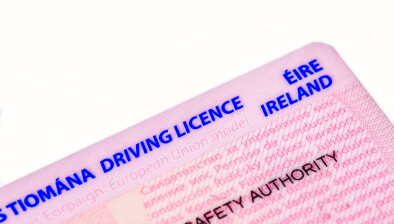Court of Appeal: Four-year driving ban upheld for man who killed woman in collision

The Court of Appeal has upheld a four-year disqualification from driving for a man who killed a 50-year-old woman in a rear-ending collision. The woman had been the passenger in a car driven by her daughter at the time of the accident.

About this case:
- Citation:[2023] IECA 157
- Judgment:
- Court:Court of Appeal
- Judge:Mr Justice John A. Edwards
Delivering judgment in the case, Mr Justice John Edwards held that the sentencing court had made an error of law by holding that he was constrained to impose a consequential disqualification for four years. However, in light of the accused’s previous convictions for drink driving, the court held that four years was an appropriate period of disqualification and therefore did not change the sentence.
Background
In September 2019, the accused was driving a van along a road near Knockskimolin, Co Wexford. Ahead of him was a Volkswagen Polo driven by Ms Katie Grimes. Ms Grimes had slowed down her car and put on her indicator in an attempt to take a right-hand turn. Also in the Polo were Ms Grimes’ mother who was in the passenger seat and her boyfriend in the rear of the vehicle.
Executing the right-hand turn required the driver to slow to a stop as there was the potential for oncoming traffic. Ms Grimes also checked her rear-view mirrors and she could see the accused’s van coming behind her. She believed that it would pass by.
However, the accused had not been paying proper attention to the road and collided with the back of the Polo. Ms Grimes and her boyfriend were relatively unhurt but the mother was seriously injured.
An ambulance was called and, upon arrival to Wexford General Hospital, the mother was pronounced dead. An autopsy report outlined that the deceased had died due to a very surreal craniocerebral trauma.
The accused was subsequently charged with one count of careless driving causing death, one count of driving a dangerously defective vehicle and one could of use of a vehicle without excise duty.
The accused entered a guilty plea in respect of the careless driving offence and the other offences were taken into consideration during sentence. The sentencing court ordered that the accused be disqualified from holding a driving licence for a period of four years and imposed a prison sentence of one year, which was fully suspended.
In evidence, it was established that the accused had an unobstructed view of the Volkswagen prior to the collision at a distance of 148 metres. This was a “more than adequate distance” to react and stop the vehicle.
It was also determined that the van had been travelling in excess of the speed that would have allowed it to come to a safe stop. Further, there was very serious damage to the Volkswagen, where the rear had been rendered “almost hollow”.
In mitigation, it was pointed out that the accused had fallen on hard times and was living in a mobile home. He was 63 years old and a disqualification from driving was going to be the effective end of his landscaping business as he could not afford to employ another person.
It was also submitted by the DPP that the offence of careless driving causing death carried a minimum disqualification period of four years. Further, it was pointed out that the accused had two previous convictions in 2005 and 2009 for drunk driving.
Court of Appeal
The Court of Appeal outlined the sentencing remarks of the judge, noting that proportionality was important in determining the correct sentence. The court identified the aggravating factors of the previous convictions and the effect on the victim’s family. The mitigating factors included cooperation with gardaí, staying at the scene, acknowledging his wrongdoing and his personal circumstances.
The sentencing judge stated that he was statutorily bound to impose a consequential disqualification of four years in the case. This was described as “significant” as it would prevent the accused from working and earning a living. A 12-month custodial sentence (fully suspended) was also imposed.
In the appeal, the accused argued that the court was wrong to impose a four-year driving ban and that a person should not be automatically disqualified without proper judicial consideration of fitness to drive (see Conroy v. Attorney General [1965] I.R. 411).
Mr Justice Edwards accepted the submissions that a disqualification did not automatically arise based on the jurisprudence in The People (DPP) v. McCann [2022] IECA 30. As such, there was an error in principle in the sentence of the judge.
However, the court went on to hold that a four-year disqualification was appropriate in the case. The court held that it had a discretion as to whether to impose an “ancillary disqualification” under section 27 of the Road Traffic Act 1961 rather than a mandatory disqualification.
Although anyone could suffer a momentary lapse in attention, there was a history of “scant regard” for taking care in driving. In particular, the drink-driving convictions showed that previous disqualification periods for two years had not corrected the accused’s behaviour.
As such, a longer disqualification period was warranted in the case, the court held. There was nothing erroneous in the four-year period imposed by the sentencing judge apart from the legal basis being incorrect. Accordingly, the court imposed an ancillary disqualification of four years.
Conclusion
The appeal was allowed with the same sentence being imposed.
The People (at the Suit of the Director of Public Prosecutions) v. O’Dowd [2023] IECA 157











